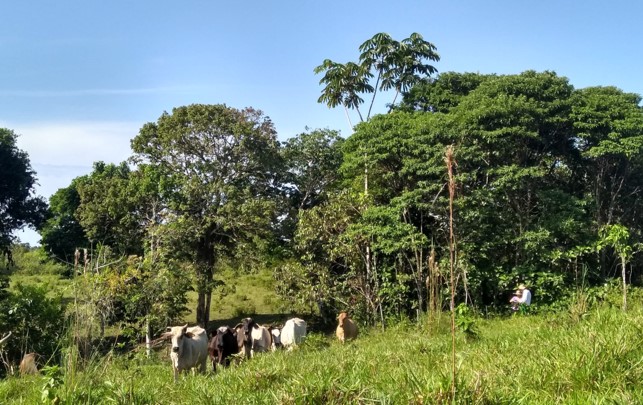Written by Andrew Barnes 5th March 2021.
I call myself an agricultural economist as that’s where my training has been. Over the (many) years of working with Government agencies and NGO’s I’m struck over how flexible I can be and still apportion that term to myself and what I’m doing. Fundamentally it’s about bringing economic thinking to our natural resources with the prime view to supporting livelihoods. Around 15 years ago I began to question some of the fundaments of that discipline as what I’d seen on farms didn’t match the theory I’d been taught.
Don’t get me wrong – the models work just about right and give us answers that can help – but when put through a magnifying glass, on-the-ground decision making reveals a whole palette of forces at work beyond any economic theory – past habits forced by necessity or the institutions imposing their will on what to do and who benefits looms large in farming decision making. This is just as true for a cattle farmer in the uplands of Scotland as it is for a family farm in the Colombian Amazon. We have employed a range of approaches to unpick this decision-making process, for example playing games to understand their risk perceptions, and they show great variances in both what individuals value and how they respond to outside economic forces.
What is revealed when the veil is removed of the Colombian farmers we’ve met and surveyed? These are poor -yes, typically with little education – yes but are also trying to engineer a complex system to support their families first and foremost and also with a pride for their cultural heritage, their identities as cattle farmers and the support for more natural systems. However, there are so many limits to what they can do to thrive as individuals, to give their kids schooling and a bright future.
It’s nothing new to criticise economics and blame it for all our problems – giving nature more prominence in our thinking helps. Arguably one of the more popular movements recently is the idea of a Doughnut economy. That is an economy living within its limits but also providing the fundamentals for individuals to thrive in a just society. We can all sign up to this, but we should recognise that some countries have high barriers and low incentives to change their current system. Our job in BioSmart is to navigate that course to encourage more uptake of silvopastoral farming to meet social and individual goals but this is to similarly low-income farmers also led by seemingly immovable objects.
To much pride, the UN COP-26 meets in my adopted home country this year and one theme is promoting nature-based solutions. I’m expecting the usual set of high-level talks about how we must change the food system, how economics is bad and how damaging agriculture is. But when we take a more real-world view it strikes me that silvopastoral farming in the Amazon should be the embodiment of Doughnut Economy principles – trees are, after all, a readily, and culturally appropriate solution that is, relatively easy to implement and has benefits – but I doubt any farmer we met would know what the term means.
Our work in BioSmart is to understand how silvopastoral systems can be scaled up and we have a whole set of tested policies and approaches to encourage uptake but when individuals are so different and have differing needs and desires, the scale of the challenge can be overwhelming. All we can do is learn from our mistakes and promote the local over the global as best we can to provide a basis for change.

